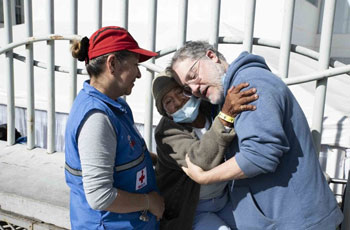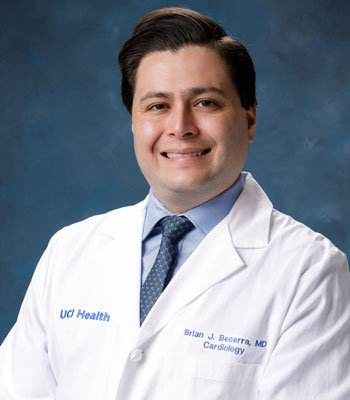
Concussion and TBI Care
Concussion and traumatic brain injury (TBI) can impact your life, and timely treatment is essential. Let our experts help.
A blow to your head from sports, an accident or a fall could create future complications for your life.
Getting accurate, comprehensive treatment and rehabilitation for concussion and traumatic brain injury (TBI) now are essential to your long-term recovery.
If you have recently experienced a concussion or TBI, and you've been evaluated or referred by a physician at the time of injury, we're here to treat you.
Our approach to concussion care
Though many concussions self-resolve, concussions can also lead to long-term symptoms, and a syndrome called post-concussive syndrome. This syndrome can include:
- Concentration and cognitive difficulties
- chronic headaches
- mood changes
Our approach to your care is comprehensive, holistic and thoroughly informed by the latest clinical research.
The concussion team is multidisciplinary, staying in constant contact with specialists and involving them as needed for your next test or treatment. We support you through all levels of concussion severity, from mild to critical.
Our collaborative team includes:
- Neurological surgeons
- Neurologists (eg headache specialists)
- Neuro ophthalmologists
- Neuropsychologists
- Speech therapists
If you’re an adult over 18 there are two main points of access to concussion care, the hospital and our dedicated clinic.
A concussion may send you to the UCI Health emergency department or our trauma service. After your discharge, they’ll send you to our clinic within a month or so.
We receive referrals from outside primary care doctors, sports doctors and other neurologists who don’t have a concussion program.
We also receive former athletes or anyone with high risk concussion history to reach out for a second opinion.
Why choose UCI Health for concussion care?
Full service neurologist-led concussion clinics are rare in the United States
We are the only specialized concussion center for adults in Orange County.
Our experts are accessible
When you step into our program, you get a direct pipeline to a passionate, multitalented group of clinicians.
For example, on a typical day we might confer with surgical ICU, trauma and neurosurgery doctors. We then use our collective expertise to present you with the most tailored treatment options.
We communicate frequently and if your symptoms are concerning, our colleagues can often expedite your workups.
We don’t miss anything
We personalize your care. During our consultation with you, we dig deep to capture all your symptoms. Headaches are common with concussion, but we check cognitive, psychological, physical and emotional symptoms.
We treat them all to get you back to enjoying life.
Looking for more options?
View all clinicians
Recent head injury or concussion? Get expert care now
Our concussion and TBI specialists provide comprehensive and follow-up care if you've experienced a recent head injury — typically within the past three months — and you were evaluated or referred by a physician at the time of injury.
Call 714-456-7720 to request an appointment with a specialist.

Find a neurology clinical trial
Talk to your doctor to see if a neurology clinical trial is right for you.
Featured News Stories
Why a perfect memory isn’t necessarily a good thing

Surgeon leads overseas medical missions to impoverished villages





